
Soft and gentle as a sigh: revisiting Butterflies
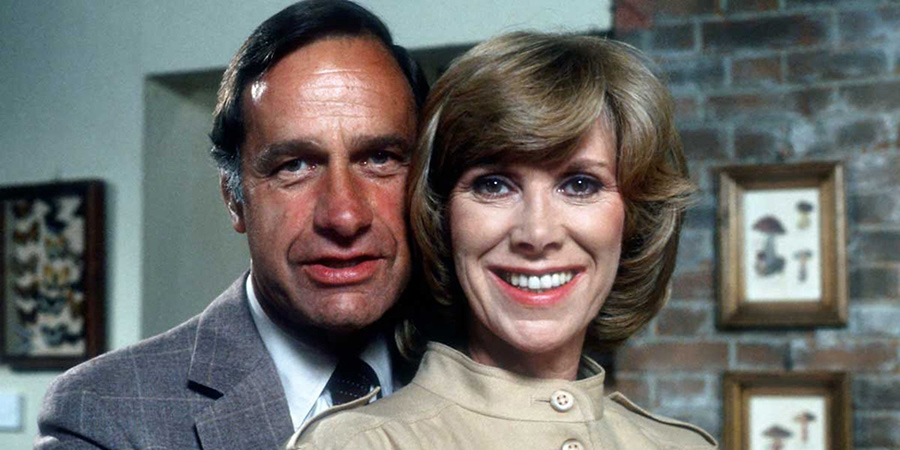
Love is like a butterfly,
As soft and gentle as a sigh,
The multicoloured moods of love,
Are like its satin wings.
Love makes your heart feel strange inside,
It flutters like soft wings in flight,
Love is like a butterfly,
A rare gentle thing.
As Clare Torry's ethereal, melancholy voice melts into the distance - and the series' idiosyncratic title sequence, featuring the cast, pinned amongst the butterflies in a shadow box, fades into the opening scene - you realise this isn't any ordinary domestic sitcom. But then, Carla Lane wasn't any ordinary writer.
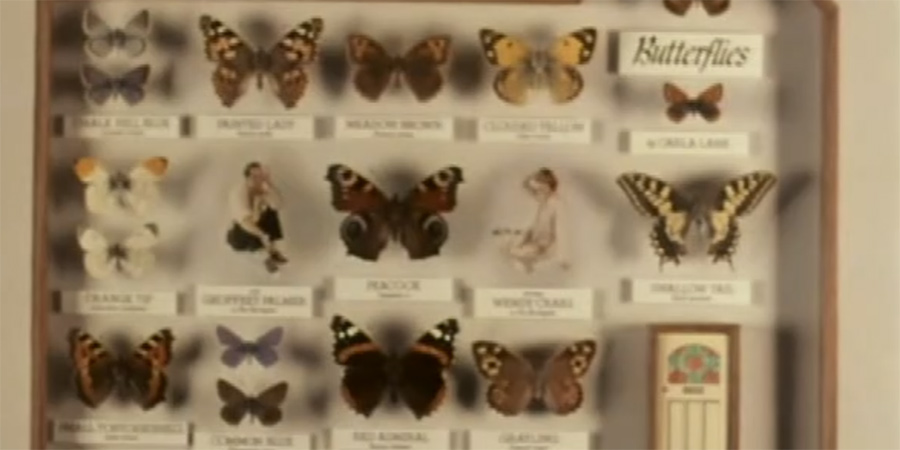
Christened Romana Barack, Carla Lane was born on the 5th August 1928 in West Derby, Liverpool. A poor performer at school (though noted in one report for her "keen sense of humour"), she spent her teens drinking-in the atmosphere of 1940s Liverpool, moving from a job in a small baby linen shop to selling perfume and cosmetics in Bon Marché, an at-the-time reasonably upmarket department store. By 19, she was married with children, but, as she went about the life of a traditional housewife, she was also writing, honing her skills in collaboration with Myra Taylor, whom she met at the Liverpool Writers' Club. Their first sitcom, early 'girl power' hit The Liver Birds, premiered on BBC One in April 1969.
However, the showbusiness lifestyle - weekly journeys from Liverpool to the BBC; months in rehearsal - was not for Taylor: after collaborating with Lane on the first two series of The Liver Birds, and a handful of episodes of Sid James vehicle Bless This House, she returned to her old life. Lane, however, was just getting started.
Growing in confidence, she began taking her scripts into new territory, moving away from the high comedy of her earliest work towards material focussed on emotional turmoil and human drama, in which the characters' ongoing relationships are far more important than the weekly plot. "That's what I do," explained Lane, in an interview with Neil Mullarkey for the BBC's Behind The Screen. "Relationships. Because there's the joy and the cruelty of it all, and everybody's indulging in this game, so you can't lose if you're writing about relationships."

Her personal life - her youthful day-dreaming, her own crumbling marriage, her passionate commitment to animal rights, and the wistful, lyrical poetry of the city she loved, but spent ever less time in - fed her work. (In semi-retirement, she wrote an autobiography, Some Day I'll Find Me, which contains details of a long and passionate love affair with an unnamed TV producer - "Him" - and a section on training a fish in her bathtub.)
Whilst her later sitcoms sometimes pushed the genre a little too far (comedy can deal with anything - assault, miscarriages, addiction - but there must be light amongst the shade, and Lane on occasion forgot that), Butterflies gets the balance just right. Although Bread, Lane's rumbunctious late-80s sitcom about a large Liverpudlian family getting by in style, may have been her biggest hit, and The Liver Birds her most culturally important, Butterflies is her masterpiece.
Indeed, it boasts a fine cast. By the mid 1970s, Wendy Craig and Geoffrey Palmer were established presences on British television screens.
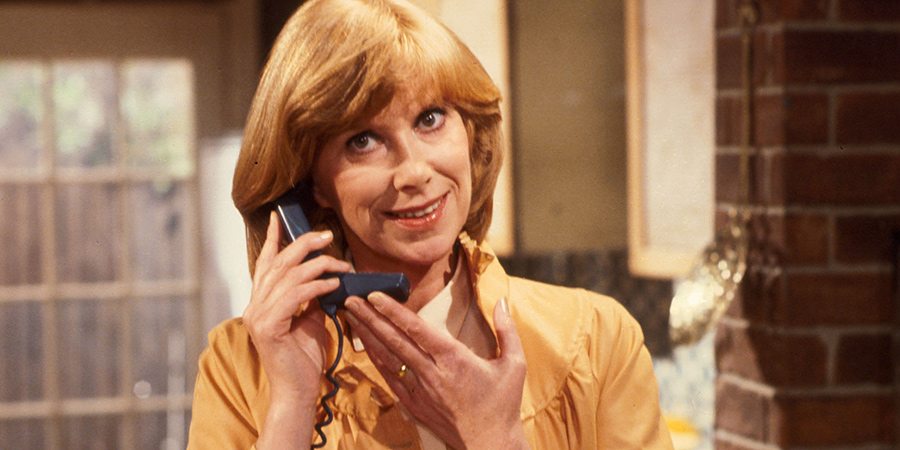
Craig was already well-known as put-upon mother and (widowed) wife Sally Harrison in Richard Waring's rather more conventional domestic sitcom ...And Mother Makes Three, an episode of which was written by Lane and Taylor (Craig would enjoy a not-unsuccessful career as a comedy writer herself, penning episodes of the show's sequel ...And Mother Makes Five under the pseudonym Jonathan Marr, as well as co-writing her own short-lived creation, BBC One's Laura And Disorder); and, as early as 1967, had been loved by BBC audiences in the hugely popular Not In Front Of The Children.
The lugubrious Palmer, meanwhile, was a sitcom stalwart, who had already brought his bloodhound face, jowly and doleful with a hint of sparkle behind the eyes, to bear in classics such as Beggar My Neighbour, George And The Dragon, The Liver Birds, and, of course, as Jimmy in David Nobbs's seminal The Fall And Rise Of Reginald Perrin.
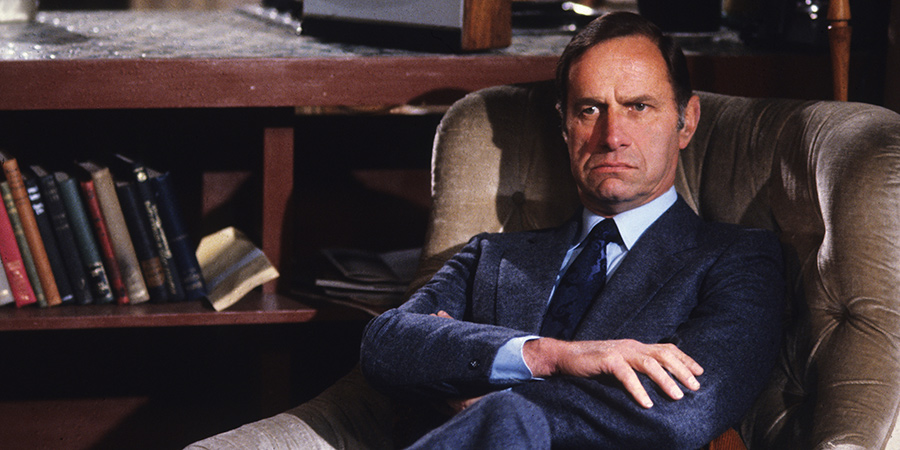
For both performers, Butterflies represented their most challenging television work to date. As Ria and Ben Parkinson, of Jade Road (the house number seemed to change; in Series 3, they live at number 11, but, by Series 4, have moved a little further down to number 27), they brought to life a portrait of a marriage which struck an uncomfortable, bleakly comic chord with many: responsible, respectable, but increasingly lacking.
The pressure of raising two teenage boys didn't help. Andrew Hall as Russell and Nicholas Lyndhurst as Adam gave the series further depth, their storylines incorporating unemployment, drug and alcohol misuse, as well as unwanted pregnancy.

Rounding off the main cast was Bruce Montague as Leonard, Ria's debonair friend, and will-they-won't-they (or should that be 'will-she-won't-she'?) love interest. "I wanted to write a comedy about a woman contemplating an affair," Carla Lane once said. The relatable family set up, the softness of Craig's performance and the affable "daddish" misanthropy of Ben only helped sharpen the series' edge.
RIA: I know why you won't make love on the sofa. Cos of one little incident years ago.
BEN: It was not one little incident, it was a major catastrophe.
RIA: I'd forgotten that one of the boys had borrowed a key.
BEN: When I looked up, and found I was in the company of a pop singer, a drummer and a lead guitarist, spontaneity packed its bags and fled.
Butterflies was first broadcast at 9pm on Friday 10th November 1978, on BBC Two. Sandwiched between a weekly round-up of events in Westminster and a documentary about North Sea oil, it was a quiet, pensive first outing as notable for its imagery as its jokes; Ria wandering lonesomely through the park to Albinoni's Adagio, the sun dappling the grass, lost in a warm, bittersweet melancholy. It was subtle; it was feminine; it was different. Across the initial six episode run, we follow Ria's growing dissatisfaction with her marriage and burgeoning friendship with Leonard.
LEONARD: You see, what I need is someone to talk to. A mature soulmate. A fellow creature, limping through the forest of life with the same injury.
RIA: I'm sorry, I don't have the same problems. Age doesn't worry me. I'm hardly aware of it. I like being... mature. I'm at the apex of my life. The height of my career - as a woman. I'm just glad to be me. I look in the mirror, and I think... I think...
LEONARD: (Handing her some paper flowers) Go on, tear those to pieces while you tell me what you think.
The key to Butterflies is the breadth of its emotional palette. It's not that Ben doesn't love his wife, it's that, content with his home and his profession, he's forgotten how to excite her. She is visibly moved when he decides to take her out to dinner, or to the cinema.
RIA: (Looks at the ticket) Ben - this is for the classic.
BEN: I know.
RIA: But the film. It's all French and erotic.
BEN: Is it? I didn't realise...
Running for four lauded series to 1983, a final outing for the Parkinsons came in a reunion special for Children In Need in 2000. Ria and Ben are still together; the boys are middle aged men with middle aged problems; Ruby the housekeeper is still moaning about the cat urinating on the washing. And Ria and Leonard's affair is still only an idea. Perhaps that's all it ever was.
It's hard to see a sitcom like Butterflies being made today. The use of a studio audience, in particular, is striking. Single camera "dramedy" has produced some notable hits, but is vulnerable to becoming so downbeat and introspective that it denudes itself of its comedic mechanisms. Butterflies is drenched in character, and, whilst its engine is complex human emotion, there are plenty of jokes along the way, too.

If Galton & Simpson dealt in masculinity, Carla Lane dealt in femininity - though she mastered male characters, and would explore the male psyche further in The Last Song, in which Geoffrey Palmer plays a divorcee embarking on a relationship with a younger woman, and I Woke Up One Morning, a moving though ultimately unsuccessful series about four alcoholics (and so light on jokes the production team dispensed with the audience after Episode 1). At its best, Lane's writing is aching and elegant; a peephole into the human condition.
Butterflies plays with the audience, marrying the laughs to a thoughtful meditation on life and love, flitting adroitly between high comedy and dolorous sentiment. But it never forgets it's a sitcom, either.
Whether Butterflies could be considered feminist in the strictest sense is doubtful. Take an average episode and it would be unlikely to pass the Bechdel Test so favoured today. But for female writers - indeed, for any writer who wants to take their comedy into deeper, frailer, more ambiguous territory - Carla Lane and Butterflies paved the way.
Where to start?
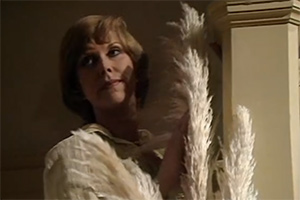
Series 1, Episode 1 - When Ria Met Leonard
I'm not usually one for starting sitcoms at the beginning - they tend to get into their stride, I find, at the 2nd, 3rd or even 4th series mark - but this is a show which really does benefit from joining at the top. It's a clever, tender opening episode. We begin with Ria descending the staircase in her suburban 'executive home', imagining she is in a fashion show. "And now, ladies and gentlemen," intones the commentator in her fantasy, "we come to Ria's ensemble. Notice the loose flowing line of the soft cotton top, and the easy to wear wraparound skirt. Fabulous for that special date."
Looking at herself in the hallway mirror, she undoes her belt to reveal... a large hole in her stocking. The tone is set for the episode, and the series, to come. Soon Ria is back to dishing up inedible food to her dysfunctional family and dreaming of her meeting with suave, emollient Leonard.
"I'm so lucky to have such an exciting life!" she exclaims at the episode's climax, a fake, desperate smile fixed across her lips, her arms wrapped around her frustratingly unromantic, yet well-meaning, husband. Ben simply grimaces at his palm. "My butterfly's squashed."
Help British comedy by becoming a BCG Supporter. Donate and join us in preserving, amplifying and investing in comedy of all forms, from the grass roots up. Advertising doesn't cover our costs, so every single donation matters and is put to good use. Thank you.
Love comedy? Find out moreButterflies - The Complete Collection

Wendy Craig stars as Ria, a suburban housewife frustrated with mundane family life, craving some escape from the drudgery. As hard as she tries she has never mastered the domestic arts and her well-meant efforts in the kitchen result in spectacular disaster. Husband Ben and layabout sons Russell and Adam live in fear of mealtimes as unidentified creations need coaxing from the pan and the words egg custard induce panic. Desperate for some excitement in her life, could a chance meeting with the charming and wealthy Leonard be the answer she is looking for?
Written by Carla Lane, Butterflies ran from 1978 to 1983 and is one of the BBC's most successful sitcoms.
This set contains all 4 series - 28 episodes on 5 discs.
First released: Monday 21st March 2011
- Distributor: Second Sight
- Region: 2
- Discs: 5
- Catalogue: 2NDVD3193
![]() Buy and sell old and new items
Buy and sell old and new items
Search for this product on eBay
BCG may earn commission on sales generated through the links above.

